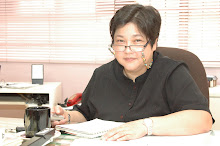Sen. Vicente Sotto’s interpellation of the RH Bill at the Senate has deteriorated into a witch-hunt of organizations supporting the bill that, in his opinion, have an agenda to legalize or promote abortion in the Philippines. The organizations that he has named so far are the Family Planning Organization of the Philippines (FPOP), Likhaan Center for Women’s Health (Likhaan), the Women’s Global Network for Reproductive Rights (WGNRR), and the Democratic Socialist Women of the Philippines (DSWP). More could follow as the senator has asked for a list of all organizations that have expressed support for the bill.
Instead of arguing about the content of the RH Bill, Sen. Sotto has shifted to attacking advocates.
This crude antic is an implied admission of weakness in conducting a reasoned and respectful debate with fellow senators who are, in the final analysis, the authors and sponsors of the measure. Civil society organizations (CSOs) are formally invited to public hearings on proposed laws and asked to present and argue their position. This engagement of CSOs is a key feature of democracy, of governance through dialogue. Unfairly using the immense powers of the Senate to attack CSOs for their different points of view is the act of a bully and violates the tenet of responsive governance.
Some RH Bill advocates—like the organizations maligned by Sen. Sotto—are truly concerned about the harm to women and their families of unsafe abortion. Because of our work in very poor urban and rural communities, we know firsthand of women who have suffered severe complications—hemorrhage, infection and perforated bowels—some of whom survived, while others died. We know of women survivors who were subjected to verbal abuse, maltreatment, and neglect in hospitals by the medical people who were supposed to help them. We know too that the reasons that push women to have an abortion are desperate, that the decision to have an abortion is never easy, and that if women could prevent abortion, they would.
Beyond the RH Bill, we stand for openly and soberly discussing the impact of abortion in the Philippines and finding humane and workable solutions. Last time we heard it, discussing abortion is legal in this country. A century of criminalizing abortion has not stopped its widespread use, but only made it dangerous.
The RH Bill has at least three features that can substantially reduce abortions without even changing the law. Family planning—whether through natural or artificial methods—can address the root of abortion, unintended pregnancy, by enabling women and couples to plan the timing, spacing and number of pregnancies. Post-abortion care, including medication, surgery and counseling, can save women’s lives, preserve their health, and help them to use family planning that will prevent repeat abortions. School-based sexuality and RH education can address peer pressure and sexual coercion and violence, delay sexual experimentation, and promote responsible behavior so that unintended pregnancies are reduced.
Those who obstruct family planning while exulting in the Philippines’ extreme anti-abortion law—which has no exception even when a woman’s life is in danger—are morally responsible for the vicious cycle of unintended pregnancy and abortion that continues to kill and maim masses of women. If government-supported measures to reduce abortion or to treat and counsel women with post-abortion complications are denied, where else could women go? What else could women do?
Sen. Sotto, if he has a modicum of sympathy for women, should find solutions to the problem of abortion instead of maligning organizations that support RH. If he is against RH, what is he for?
Anyone concerned about the health of women and the families that they care for will find it unconscionable to object to the RH Bill. If Sen. Sotto is worried that the bill will legalize abortion, then he needs to simply study the text and accept or reject it based on what he actually reads, not on what he reads of advocates’ intentions.
Released 7 September 2011 by:
Roberto Ador
Executive Director,
Family Planning Organization of the Philippines
Junice D. Melgar
Executive Director,
Likhaan Center for Women’s Health
Sylvia Estrada Claudio
Chairperson,
Women’s Global Network for Reproductive Rights
Elizabeth Angsioco
Chairperson,
Democratic Socialist Women of the Philippines
Is an Anti-Choice Clinic Using ‘Unlawful Imprisonment’ as Company Policy?
-
Those familiar with the tactics employed at anti-choice pregnancy clinics
say they're not surprised by a recent Reddit post from a clinic worker.
The po...
7 years ago


No comments:
Post a Comment